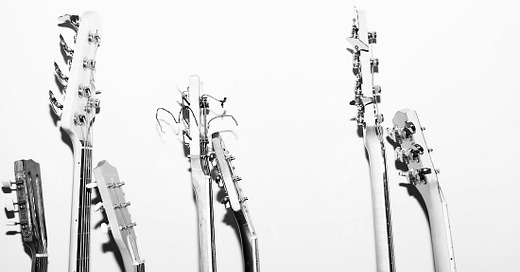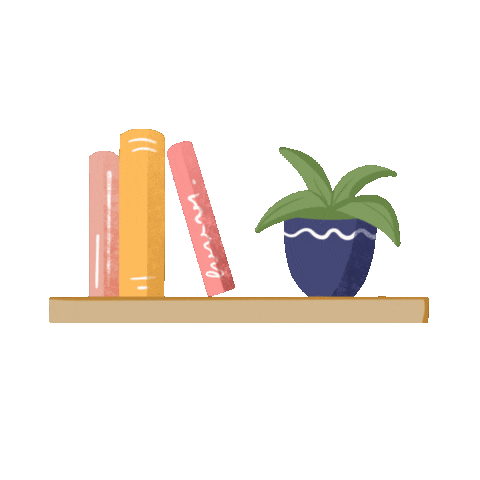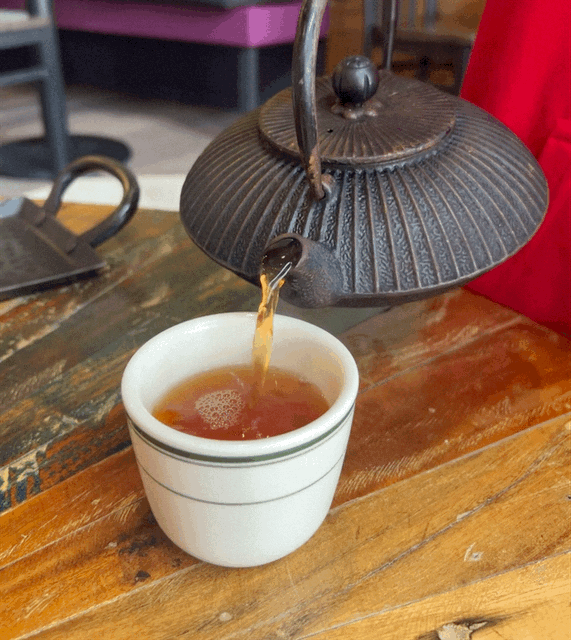A Genre Unto Herself + genres, grants, & great upheavals
Kaki King and breaking down genre barriers; free residencies; fairytales; tv tropes; plant intelligence; publishing changeover; PEN America cancellations; Alice Munro obit; prize winners; peach tea
Greetings readers & writers,
I’ve gotten to sit outside all morning in this early summer weather. Inside, there are dishes to put away, laundry to do, cleaning up that needs to happen. Instead, I’m tackling every possible email/reading/writing project that will allow me to keep sitting on my patio. Maybe it’s the lovely warmth, cooling breeze, or the buzzing of bees around the thyme blossoms, but I just want to encourage you to take yourself on a little walk today, write or read a poem, indulge in a favorite iced beverage, whatever you need to turn that creative hum in your heart into a song.
*
Speaking of songs…
In the 2007 movie, August Rush, the eponymous main character, played by a young Haley Joel Osmet, is revealed to be a prodigy by the musicality of how he bangs on the strings of a guitar, an instrument he’s never played. There is plenty of Hollywood going on, so we are led to believe that, with no musical training or influences whatsoever, August is able to intuitively create an incredible piece of original music.
As a young writer, especially one with an interest in songwriting, this spoke to me. I think a lot of media encourages the fantasy that raw talent = complete originality = art of the highest value. But push aside the veil of movie magic and there is an actual artist behind that carefully constructed and not-at-all-accidental composition: Kaki King, a ground-breaking guitarist (whose hands are actually featured in the film) that Rolling Stone called “a genre unto herself.”
I’ve been thinking a lot about genres recently, as well as this idea of “originality,” so I went down a long, internet and intellectual rabbit hole and you’re coming with me.
I’ve been a Kaki King fan for over a decade. Big nerd reveal: I didn’t listen to pop music as young person. Somewhere around late middle school/early high school, I discovered instrumental New Age music, including guitar artists like Michael Hedges, Will Ackerman, Alex de Grassi, Earl Kluge, and Leo Kottke. While King doesn’t identify as a New Age artist—and in fact, I’m sure, would reject any genre labels—she’s the first to say that artists like these were a major influence. So when I first heard (and fell in love with) her music, it was for both the familiar qualities and the way that she, specifically, blends and uproots them.
The artists I mention above (and others on labels like Windham Hill and Narada) drew their inspiration from older genres: celtic and Irish guitar and fiddle; Appalachian finger-picking; jazz, blues, and zydeco; and combined them with the newer stylings of rock guitar soloists (Led Zepplin, anyone?); folk music from the 60s and 70s; then incorporated technology and pop rhythms of the 80’s (enter the synthesizer!) New Age was (and is) a category rich in influences and experimentation.
So if King was drawing from this long line of other artists, was she really creating a “genre unto herself”?
Music reviewer Tom Moon gives some context:
King arrived at a moment when the deeply entrenched categorical distinctions between genres and styles were beginning to erode—she was among the unclassifiable whose work rendered classification meaningless. Musicians who’d previously stuck to a well-defined lane were stretching out and experimenting, without paying much attention to the considerations of marketing. There was suddenly room in the large tent of popular music for artists whose work straddled several previously disconnected realms, or seemed to come from a new realm entirely.
I think the literary community has reached this point as well.
At the Muse & the Marketplace conference earlier this month, there was a marked increase in discussion about genres beyond the “literary.” There were sessions on climate apocalypse writing; Latina and epistolary horror; fantasy and sci-fi publishing; and speculative fiction cults. I sat in on author Mark Cecil’s presentation on tropes, where he urged writers to consider how “genre tropes can be a doorway to original creativity.” He shared the late, great designer Virgil Abloh’s 3% rule: that creativity only requires a 3% tweak on a convention to become an original contribution.
My own presentation on re-defining genre examined the features of “speculative” and “literary” writing and how these categories intersect and influence each other. How different participants in the process — readers, writers, agents, editors, publishers, booksellers— perceive these categories differently. How a book can be too “sci-fi” for one agent and too “literary” for another.
And these rooms were packed. I talked to so many writers who shared that they were finally reconnecting with their love of certain tropes and categories they’d always shied away from because they were taught those genres were not associated with “true” writing. Mystery, thrillers, fantasy, horror. I think this is part of a much larger discussion about who traditional writing workshops and MFA programs were originally designed by and for (hint: not folks writing outside approved “literary fiction” cateogries, and certainly not people writing from non-”Western” cultural backgrounds). As places like Grub Street and others implement ways of breaking down those barriers between whose work can be effectively workshopped and how, it’s helping to dissolve genre barriers as well.
(It’s worth noting that if you look up musicians “like” Kaki King (who is queer and female) you get almost exclusively white, male artists.)
Those who try to qualify art — record labels, publishing companies, music and writing critics—do so for marketing purposes. Genre categories allow for discovery of new art and artists, a shared experience and camaraderie, and the structures/audience expectations for artists to build off of. Plus it’s easier to sell you something if they can tell you exactly what you’re getting. Which is helpful for consumers and creatives too! It’s satisfying to reach for a romance novel or an R&B album and know what to expect.
But genre distinctions can also have a flattening effect: an entire, wide-ranging category gets defined by a single work or stereotype, which leads to all kinds of limiting and exclusionary practices. The false narrative that only some genres have value, that pure originality is what everyone wants. When the truth is there’s nothing better than a friend pressing a book or album into your hands that’s impossible to classify except as “this is perfect for you.”
In college, I was half-embarrassed, half-proud to share my musical preferences. New Age was associated with music piped into a waiting room or the mall. Or the as-seen-on-TV CDs like Yanni, Enya, or Pure Moods, which were often considered a joke due to their advertising ubiquity. Considered low artistic value all around. But my musical interests were (and are!) much broader and deeper than just those few touch points.
These days, I’ve embraced the fact that my literary and musical interests can rarely be pinned to a single category. Instead, I lean into the idea of having a personal, artistic palate. I’m enjoying the taste of literary-speculative-weird-narrative-structure books at the moment (try finding that on a bookstore shelf!) and I’ve been in a “broody male singer-songwriters” phase for a while. I also recently discovered handpan music, which, like a good cup of tea, can be either relaxing or invigorating, depending on the flavor. And, as always, some good fingerpicking guitar!
Freshman year, when a new, cute boy asked what kind of music I was into, I hedged, trying to get ahead of the stereotypes:
“Elevator music,” I quipped. “Muzak.”
“Really? Like what?” he asked.
“New Age,” I finally admitted, awaiting the skeptical onslaught.
“Oh, I like New Age music too,” my future-husband said, opening his laptop. “I’ve got all the Narada Piano collections. What artists do you like?”
*
How to Participate in Your Writing Community + BookTok, Plotting tips, & Industry Controversies
Greetings readers & writers, This past weekend, we were discussing networking and conferences in one of my seminars and a student asked: “Before you’re published, how do you know when you’re ready to go from spectator to participant?” The first part of this answer is...
Writing/Marketing Resources
You ready to hunker down and dig into your creative work? The ever-resourceful
has compiled a robust list of Fee-Free Writing Residencies on her blog.Shout-out to my new buddy, writer and editor Kit Haggard for this great link to The Awesome Foundation and their $1000 grants of awesomeness. To apply, check out a chapter near you.
Talking about genres, one of my favorites is the myth/fairytale. Reactor Mag had a great article recently on How to Fight a Fairy Tale: Retellings in the Age of Romantasy that explores how “The trouble with structuring a book around a fairy tale is that fairy tales make no sense—but books have to.”
New to a genre or particular trope? TVTropes.com is a powerful (and sometimes overwhelming!) source of learning and inspiration (“Treat it like a mentor, like your super smart friend who’s read and watched everything and who can help you brainstorm.” - Mark Cecil) I’ve also discovered they have a story generator for when you need an Ephiphany Comeback.
Reading Corner:
I’ve been reading up on plant intelligence lately. Not even for a story, but no doubt one will emerge. Here are a couple of really cool articles I’ve come across:
Learning the Language of Plants {Orion}
The Mysteries of Plant “Intelligence” {The Atlantic — free link}
What is it Like to Be a Plant? {Scientific American}
Industry News:
In a surprise shake-up, Penguin Random House Dismisses Two of Its Top Publishers {The New York Times — free link}
PEN America cancelled both its 2024 Book Awards and it’s 20th World Voices Festival {Publisher’s Weekly}, in the wake of heavy controversy around the organization’s response to the humanitarian crisis in Gaza.
Her stories and exquisite, authentic writing made a huge impact on me in college, so I was very sad to hear that Canadian writer, Alice Munro, a “titan of the short story”, passed away at age 92 {The Guardian} (Here’s a great one: “Friend of My Youth”)
Tea
Must be on a peach kick over here! We fell in love with this rooibos blend from Nirvana Tea House and Cafe in Millis, MA, which has a fully vegan menu, with lots of gluten-free options. Peach Perfect tea is the ideal combination of nutty, mellow rooibos and tart, juicy peach flavors. My kiddo likes it hot, I like it iced, pick your delicious poison. Alas, you can’t buy it online, but if you’re in the area you can buy it in person or have it delivered to your door!
Own your personal taste, it’s uniquely yours! Read or listen to something you love,
~Allison
Writer & Marketing Coach
Keep Writing, Keep Connecting! Substack | Facebook | Website | BlueSky | Anthology
Like what you read? Thanks so much for your support! Continue to show the love by hitting that heart button, subscribing, leaving a comment, and/or passing it along!







Did you ever see the documentary The Secret Life of Plants? It's a 1979 film with Stevie Wonder (!) and it is a rambling mess of oddness but a very fun watch if you can find it.
Thank you for amplifying the fee-free residencies list, Allison!